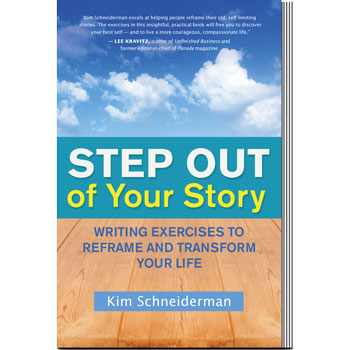Once in a while, when a conversation with someone I care about takes an unexpected turn that is not to my liking, I am tempted to stand up and yell “C-U-U-U-U-T!” “Excuse me,” I imagine myself saying, leaning over the person’s shoulder, megaphone dangling at my hip. “But you are not following the script. Your […]
The Truth About Transitions
Change Isn't So Scary When You Know What to Expect
Change is the one constant in life. And yet, we are often surprised when it comes. Parentsreward us for mastering routines of hygiene and self-discipline. Our educational system grooms us for progressive levels of security, reinforcing the belief that skill mastery yields the predictable comforts of a settled life. As we age, we are measured […]
Spells and Charms: Harry Potter and the Power of Positive Thinking
JK Rowling reminds us that true magic lies within us As a psychotherapist who works with young adults, I often allude to pop culture in my private practice. So when my 20-something client and professed Harry Potter devotee grew anxious about a dreaded trans-coastal visit to her Dementor of a mother-in law in Los Angeles, […]
Compare and Despair
How to Tackle the Green-Eyed Monster
A former dance teacher used to say, “Don’t bother comparing yourself to others. There will always be people better than you, and worse than you. The most important thing is to ask yourself, “Am I improving?” Of course, this is often easier said than done. Not only are we constantly bombarded by advertisements preying on […]
When Is It Time to Ditch a Frenemy?
What separates friend from “frenemy” is the presence or absence of one essential ingredient: trust. Trust is the litmus test of any relationship, period. Without trust, there can be no (healthy) relationship. So if you want to distinguish friend or foe, start by asking yourself, “Do I trust this person? Does he or she have […]
One Photo Sums Up The Most Stressful Part of Modern Dating
http://mic.com/articles/109014/one-photo-sums-up-the-most-stressful-part-of-modern-dating
The Most Underrated Part of Your Relationship: Your Best Friend
http://mic.com/articles/116212/the-best-thing-that-ever-happened-to-your-relationship-your-best-friend
What is a spornosexual?
It's the new wave of metrosexuals, journalist writes
http://www.nydailynews.com/life-style/health/spornosexual-article-1.1826983
How to Cope with the Most Important People in Your Life
Every spring, many of my young adult psychotherapy clients go home to reconnect with their families over the Passover or Easter holidays, and return with more or less the same question: “How to do I maintain my peace of mind and self-respect and still remain connected to my family (who either don’t understand/accept me or […]
4 steps to make your criticism more constructive (and effective)
Question: Lately, I find myself getting frustrated and snapping at my husband when he doesn’t listen to me or follow up with things I ask him to do; he gets defensive and says I’m too critical. Any advice? You’re not alone. Communication is the key to a healthy relationship — and yet, you’d be surprised […]
- « Previous Page
- 1
- …
- 4
- 5
- 6
- 7
- Next Page »


